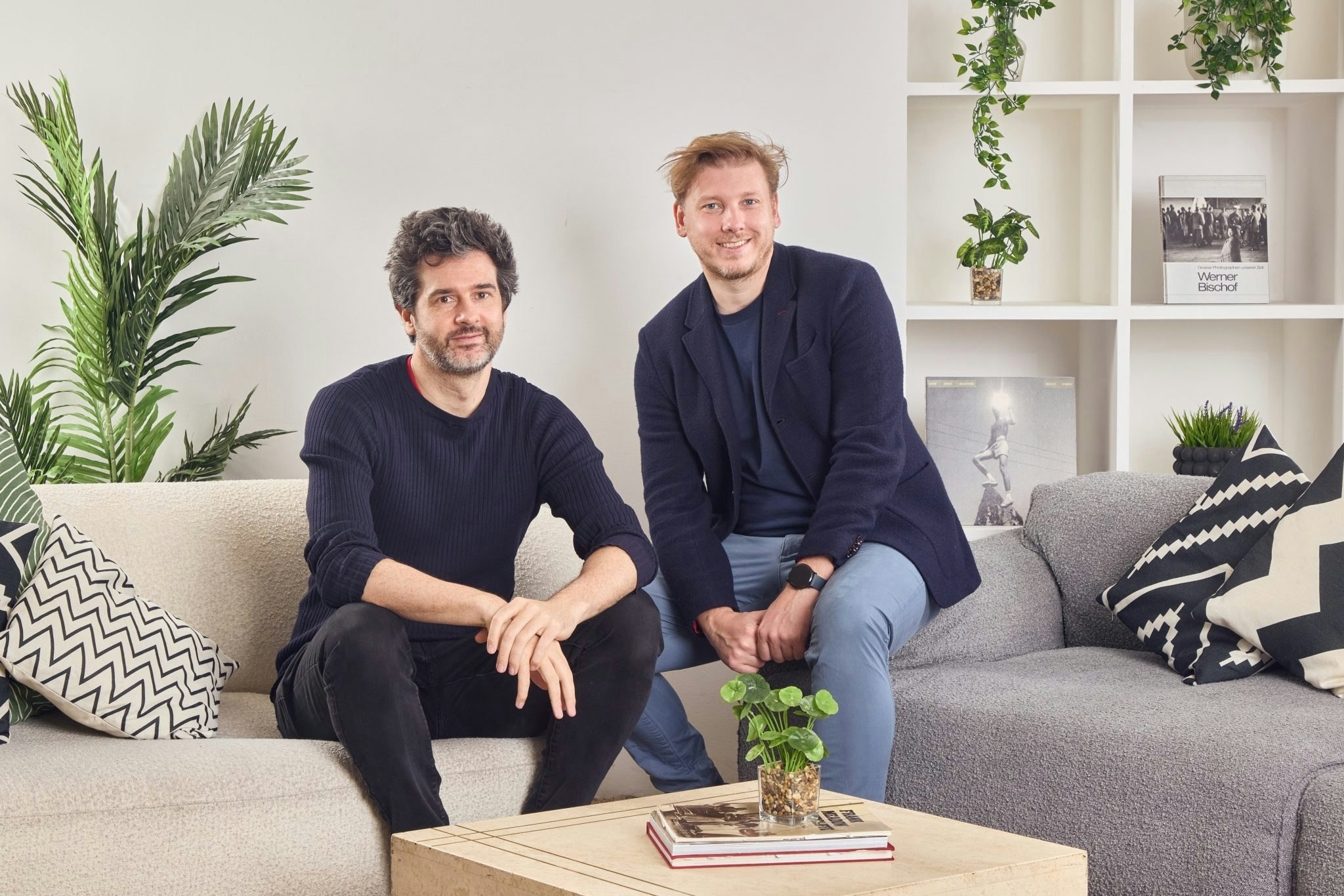Payments used to be one of the fintech’s hottest subsectors — 2021 saw fintech investors funnel $9.9bn into European payments companies — but was one of the hardest hit by last year’s fintech funding drought.
Last year, VC funding in the space totalled $2bn — its lowest level since 2018. At the same time, consolidation in the market has ramped up.
2023 saw a total of 31 VC-backed payments businesses get acquired. Some notable examples include Swedish open banking business company Trustly’s acquisition of SlimPay and fintech infrastructure Rapyd’s buyout of the Netherlands-based PayU.
Funding levels so far this year aren’t showing much signs of recovery either. As we cross into the second half of the year, only $595m has been invested into Europe’s payments startups.
Still, investors advocate that there’s life in the sector yet. In particular, they cite payments fintechs catering to the B2B market where the digital revolution seen in consumer payments has yet to hit saturation point.
With that in mind, we spoke to some of Europe’s top fintech investors to get their take on the up-and-coming companies in the space. The only catch is that they had to be non-portfolio companies — here are the companies they chose:
Greta Anderson, principal at Balderton
Balderton Capital is a London-based multi-stage VC firm.

Tunic Pay — UK
Tunic Pay is building a payment control infrastructure for banks and fintechs to protect customers from payment scams. As scams run rampant, and a forthcoming reimbursement mandate puts UK banks and fintechs on the hook to reimburse fraud victims from October, the market is desperate for new tools to fight scammers.
Yonder — UK
Yonder is a consumer credit card that offers premium lifestyle rewards, focused on curated experiences in your city and abroad. While Americans are spoilt for choice when it comes to rewards cards, Europe has decidedly fewer options. What makes Yonder special is its instant and frictionless rewards technology that creates a 'wow' moment when you redeem an experience.
Light — Denmark
Light is a next-gen enterprise resource planning (ERP) tool — a software system managing accounting and resource management — focused on multinational companies. Founded by the cofounder of ecommerce neobank Juni, Light has chosen to tackle one of the most complex products out there and go head-to-head with US-based ERP provider NetSuite. The space is one of the last areas of the CFO stack to be modernised, and there is massive appetite and opportunity for a modern solution here.
Pirkka Palomäki, founding partner at Maki.vc
Maki.vc is a venture capital firm headquartered in Helsinki, Finland.

Silverflow — Netherlands
Silverflow is a cloud-native platform for global payment processing with a single API to the card networks. The company’s product has the potential to reduce costs and complexity in the payment sector, making it a highly interesting company. It raised a €15m Series A in late 2023.
Mimo — UK
Mimo combines multiple business payment needs under one solution. Mimo can reduce the number of tools needed to manage money-in, money-out, while keeping your books up to date automatically. The company raised a €18m round in 2024.
Daifin — Sweden
An online platform which provides short-term financing to SMEs that import goods from abroad and was founded by professionals with backgrounds at open banking fintech Tink.
Midday.ai — Sweden
As freelancing and micro-businesses become more popular, Midday automates the “boring” part of the business and helps to keep track of income, expenses, financial health, projects and invoicing.
Akash Bajwa, principal at Earlybird Ventures
Earlybird Ventures is a Berlin-based VC fund founded in 1997.

Sling — Netherlands and US
Interoperability between local, real-time payments networks is still a long way away. Whilst we’re fortunate in Europe to have Instant Single Euro Payments Area (SEPA) transfers, stablecoins represent a step change improvement in the transmission of money across borders by being significantly faster and cheaper than the correspondent banking system.
The team is building a consumer-grade experience that abstracts away the complexity of wallet addresses and interacts with underlying blockchains, rendering adoption effortless. As more of the last mile issues of off-ramping get resolved, there is no doubt we’ll see adoption continue on its steep trajectory.
Apron — UK
Apron is building a consumer-grade experience for the tedious Accounts Payable (AP) process that can beset small and micro businesses with hours spent reconciling invoices. The team has experience building delightful user journeys as well as nailing the channel distribution strategy through accountants, leading to fast time to value and a go-to-market motion that can scale.
They’ve also expanded their product suite well by owning the AP workflow and sequentially layering on further products.
Luis Valdich, managing director of venture investing at Citi Ventures
Citi Ventures is the venture capital arm of the US financial giant Citibank.

Volt — UK
Volt has built a global open banking payments aggregation platform to bring together domestic instant payment schemes and empower merchants to receive account to account (A2A) payments in a universally consistent way. Recent trends suggest a growing demand for real-time, frictionless digital payments that offer lower costs and enhanced security, a trend that is catalysed by open banking.
Volt has assembled a very strong team led by co-founder and CEO Tom Greenwood, who has attracted strong talent from payments fintechs Adyen and PayPal, and the company has shown impressive traction driven by geographic expansion and partnerships.
Navro — UK
Navro has built an embedded payments solution that combines localised pay-in and pay-outs to streamline, improve operations and drive down costs for global mid-market cross-border marketplaces. The company has customers who are not large enough for global payment rails but still have pain points associated with cross-border payments and often end up paying above-average fees. Navro has seen the emergence of a strong customer pipeline and has built traction across Europe.
Flatpay — Denmark
Flatpay offers a point of sale and payments solution for small, independent brick-and-mortar small medium enterprises, or SMEs, (e.g. coffee shops and restaurants). Their edge is a flat fee structure (hence the name), which makes it easy for merchants to manage and track their overall fees related to digital payments.
The company features a highly execution-driven team that has delivered on its go-to-market strategy and offers solutions in Denmark, Finland and Germany.
Crezco — UK
Crezco offers complete payments solutions for SMEs that simplify pay-by-link capabilities and help with bulk payments, cross-border payments, recurring payments and invoices — all with just a few clicks. They leverage open banking (as it has become more implemented across Europe) and work with over 500 banks in the UK & EU to deliver best-in-class service to their customers.
Tom Filip Lesche, partner at SpeedInvest
SpeedInvest is an early-stage fund located in Austria.

Billhop — Sweden
Billhop is rewriting the rules of business payments. Picture a bustling company, no longer shackled by the constraints of traditional invoicing. With Billhop, any invoice can be settled using a credit card. This innovative service helps companies manage cash flow more effectively, extending payment terms and offering the benefits of card rewards. Billhop's last round was a Series B+ led by EQT Ventures, announced in September 2023.
Payflows — France
Payflows is transforming the payment landscape for businesses with its 360 degrees finance automation platform. Envision no more chasing late payments or managing endless invoices manually.
Payflows integrates seamlessly with existing accounting software, automating invoicing, payment reminders and reconciliation. This means businesses can focus on growth instead of cash flow headaches. Payflows' last round was a Series A led by Balderton Capital announced in April 2024.
Kadmos — Germany
Kadmos is redefining the world of international payroll. Imagine a seamless platform that eliminates the complexity of cross-border salary payments, ensuring that employees, no matter where they are, receive their earnings swiftly and without hassle.
This innovative solution not only enhances efficiency but also fosters trust and satisfaction among a global workforce. Kadmos' last round was a Series A led by Blossom Capital, announced in July 2022.
Johnnie Martin, investor at Augmentum Fintech
Augmentum Fintech is a publicly-traded VC firm focusing on financial technology.

Fung — Netherlands
Fung is building a payments solution specifically for vertical software-as-a-service platforms. We have seen a shift towards verticalised payments in the last year and the Fung solution plays into this, enabling platforms to offer seamless embedded payments experiences to customers while doubling down on increasing engagement and conversion.
Slicker — UK
In the global economy, finding a clear, unified view across payment providers is extremely challenging for large merchants. Slicker takes an innovative approach offering a modular platform that allows customers to discover rich insights and make informed decisions about providers, payment methods and checkout flows by integrating into their existing payments infrastructure.
Klearly — Netherlands
Recent payments innovation has broadly focused on online payments, leaving offline transactions still reliant on outdated incumbent solutions. As a result, merchants are forced into paying high point-of-sale fees to accept these offline payments. Klearly’s product gives merchants transparent pricing and embeds within existing software and devices thereby offering customers a seamless payment experience.
Tom Filip Lesche also chose Yonder. Akash Bajwa also chose TunicPay.


